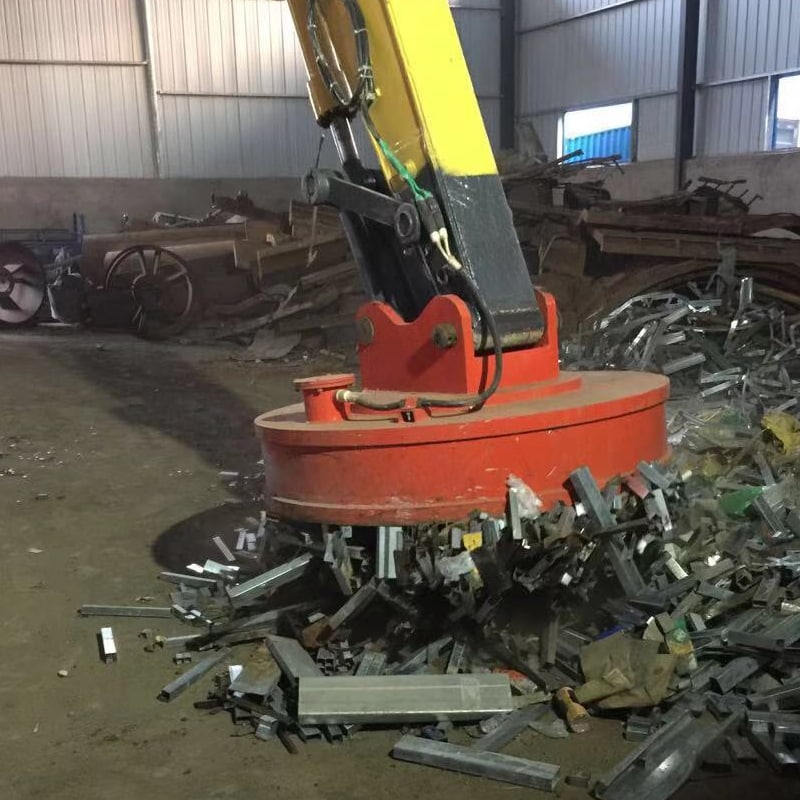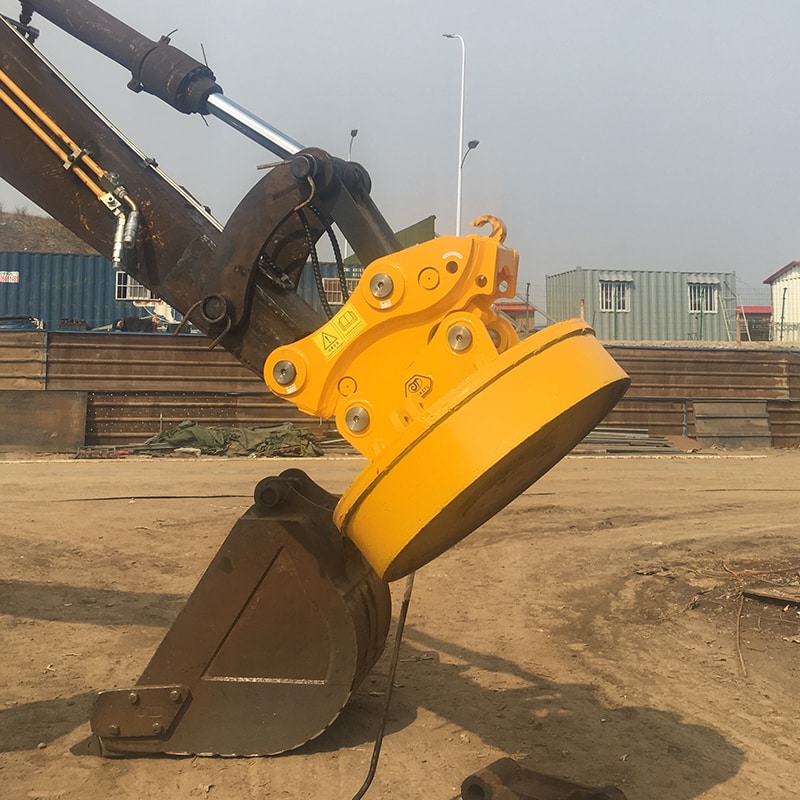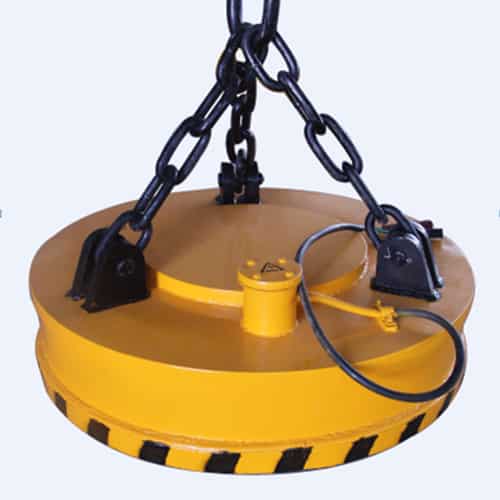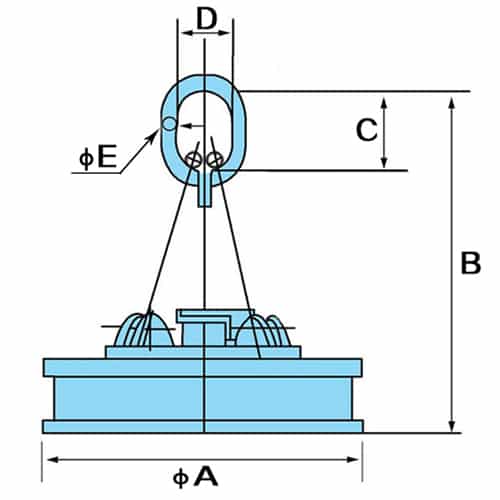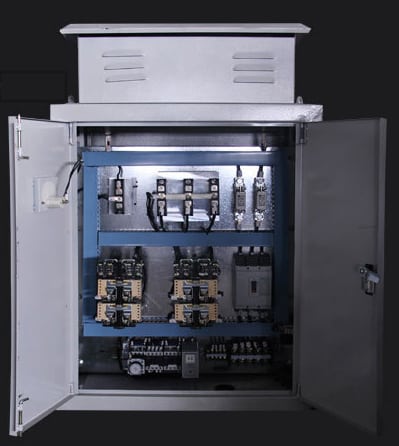Whether you’re in the construction or recycling industry, excavator electromagnets can be invaluable tools for handling and carrying heavy metal materials. In this article, we’ll take a look at the various benefits of using these electromagnets and the different applications they can be used for.
What are Excavator Electromagnets?
If you’re in the construction or demolition business, then you know that excavators are a necessary part of the job. But did you know that excavator electromagnets can be used for more than just excavation? They can also be used for heavy metal handling and carrying.
Excavator electromagnets are powerful magnets that are attached to the arm of an excavator. They are used to move heavy metal objects, such as scrap metal, rebar, or even vehicles. They can also be used to carry objects up and over obstacles.
JIANGTU Electromagnets are used in conjunction with various hoisting machinery and are widely used for handling and carrying pig iron, scrap, square billet, sheet, pipe, and other ferromagnetic materials in steelmaking plants, rolling mills, scrap steel processing plants, large foundry workshops, shipyards, heavy machinery factories, steel warehouses, port terminals, and stations.
There are many benefits to using excavator electromagnets for heavy metal handling and carrying. First, they allow you to move heavy objects without having to use a crane or other lifting device. This saves time and money. Second, they protect your workers from injuries associated with lifting heavy objects. And third, they allow you to move objects in tight spaces that a crane or other lifting device would not be able to reach.
If you’re looking for an efficient and safe way to handle and carry heavy metal objects, then consider using excavator electromagnets. They will save you time and money, and keep your workers safe from injuries.
Advantages of Using Excavator Electromagnets
When it comes to excavating and handling heavy metals, there are many advantages to using an excavator electromagnet. For one, electromagnets allow for a much smoother excavation process since there is no need to physically lift and carry the metals. Additionally, excavator electromagnets can reach into smaller spaces and tight areas that would be difficult to access with traditional methods.
Another advantage of using an excavator electromagnet is that it eliminates the risk of worker injury. Traditional methods of heavy metal excavation and handling often require workers to manually lift and carry heavy loads, which can lead to back injuries and other musculoskeletal problems. With an excavator electromagnet, all of the lifting and carrying is done by the machine, eliminating the risk of worker injury.
Finally, using an excavator electromagnet can also help to reduce environmental impact. When metals are manually extracted and handled, there is a greater risk of spillage and contamination. Excavator electromagnets can help to minimize this risk by containing the metal load throughout the extraction process.
How to Operate an Excavator Electromagnet?
An excavator electromagnet is a great tool for heavy metal handling and carrying. Here are some tips on how to operate one:
- First, make sure that the area you’re working in is clear of debris.
- Next, attach the electromagnet to the excavator’s arm.
- Now, power on the electromagnet by flipping the switch on the control panel.
- You can now operate the excavator arm as usual, and the electromagnet will pick up any ferrous metal objects in its path.
- To release the object, simply flip the switch on the control panel to the “off” position.
- Common Uses for Excavator Electromagnets
- Excavator electromagnets are most commonly used for heavy metal handling and carrying. They are also used for scrap metal recycling and to remove iron from tailings.
How to Choose the Right Electromagnet for Your Project?
When choosing an electromagnet for your project, there are a few factors to consider. The first is the size of the magnet. The bigger the magnet, the more powerful it will be. However, you also need to consider the weight of the object you’re trying to lift. If the object is too heavy, the magnet may not be able to lift it.
Another factor to consider is the power source. You’ll need to make sure that the power source is strong enough to provide enough power for the magnet. If you’re using a battery, you’ll need to make sure that it’s fully charged before using it. Otherwise, you may not be able to generate enough power to lift the object.
Finally, you need to think about where you’ll be using the magnet. If you’re going to be using it outdoors, you’ll need to make sure that it’s weatherproof. Otherwise, it may rust or corrode over time.
Specification – Excavator Electromagnet
The following are the technical parameters of the Excavator Electromagnet.
| Model | MW5-70 | MW5-80 | MW5-90 | MW5-100 | MW5-110 | MW5-120 | MW5-130 | MW5-150 | MW5-165 | MW5-180 | MW5-210 | MW5-240 | |
| A | mm | 700 | 800 | 900 | 1000 | 1100 | 1200 | 1300 | 1500 | 1650 | 1800 | 2100 | 2400 |
| B | mm | 800 | 800 | 1090 | 1090 | 1140 | 1180 | 1240 | 1250 | 1590 | 1490 | 1860 | 2020 |
| C | mm | 160 | 160 | 200 | 200 | 220 | 220 | 250 | 350 | 370 | 370 | 400 | 450 |
| D | mm | 90 | 90 | 125 | 150 | 150 | 150 | 175 | 210 | 230 | 230 | 250 | 280 |
| E | mm | 30 | 30 | 40 | 45 | 45 | 45 | 50 | 60 | 75 | 75 | 80 | 90 |
Safety Tips for Operating an Excavator Electromagnet
If you’re looking for a powerful and efficient way to move heavy metal objects, an excavator electromagnet is a great option. However, it’s important to take some safety precautions when operating this type of equipment. Here are a few tips to keep in mind:
Wear appropriate personal protective equipment (PPE). This includes gloves, ear protection, and safety glasses or goggles.
Make sure the area around the magnet is clear of debris before turning it on.
Keep your hands and fingers away from the moving parts of the magnet.
Be aware of your surroundings and keep clear of overhead power lines.
Never attempt to move more than one object at a time with the magnet.
Following these simple safety tips will help ensure that you have a safe and successful experience when using an excavator electromagnet.
Conclusion
Excavator electromagnets offer a number of benefits for heavy metal handling and carrying. They are strong, efficient, and easy to use. Plus, they can save you time, money and energy when it comes to processing scrap metals. With their ability to lift large objects from the ground quickly and safely, excavator magnets are a great addition to any jobsite or construction project. Whether you’re in demolition or recycling industry, excavator electromagnets provide an ideal solution for your needs.
.kadence-column_6bb113-5b > .kt-inside-inner-col{border-top-width:0px;border-right-width:0px;border-bottom-width:0px;border-left-width:0px;}.kadence-column_6bb113-5b > .kt-inside-inner-col,.kadence-column_6bb113-5b > .kt-inside-inner-col:before{border-top-left-radius:0px;border-top-right-radius:0px;border-bottom-right-radius:0px;border-bottom-left-radius:0px;}.kadence-column_6bb113-5b > .kt-inside-inner-col{column-gap:var(–global-kb-gap-sm, 1rem);}.kadence-column_6bb113-5b > .kt-inside-inner-col{flex-direction:column;}.kadence-column_6bb113-5b > .kt-inside-inner-col > .aligncenter{width:100%;}.kadence-column_6bb113-5b > .kt-inside-inner-col:before{opacity:0.3;}.kadence-column_6bb113-5b{position:relative;}@media all and (max-width: 1024px){.kadence-column_6bb113-5b > .kt-inside-inner-col{flex-direction:column;}}@media all and (max-width: 767px){.kadence-column_6bb113-5b > .kt-inside-inner-col{flex-direction:column;}}
Contact For Our Expert
Find out which attachment & Excavator works best for you!
.kadence-form-_b71a8f-dd .kb-form .kadence-blocks-form-field .kb-text-style-field, .kadence-form-_b71a8f-dd .kb-form .kadence-blocks-form-field .kb-select-style-field{color:var(–global-palette9, #ffffff);background:var(–global-palette3, #1A202C);}.kadence-form-_b71a8f-dd .kb-form .kadence-blocks-form-field .kb-text-style-field:focus, .kadence-form-_b71a8f-dd .kb-form .kadence-blocks-form-field .kb-select-style-field:focus{color:var(–global-palette9, #ffffff);}.kadence-form-_b71a8f-dd .kb-form .kadence-blocks-form-field .kb-forms-submit{color:var(–global-palette3, #1A202C);background:rgba(50, 150, 255, 0.92);border-color:var(–global-palette3, #1A202C);box-shadow:2px 2px 3px 0px rgba(0, 0, 0, 0.2);}.kadence-form-_b71a8f-dd .kb-form .kadence-blocks-form-field .kb-forms-submit:hover, .kadence-form-_b71a8f-dd .kb-form .kadence-blocks-form-field .kb-forms-submit:focus {color:#156fce;border-color:#1575d5;box-shadow:2px 2px 3px 0px rgba(0, 0, 0, 0.4);background:var(–global-palette3, #1A202C);}
.kadence-form-_b71a8f-dd .kadence-blocks-form-field.kb-submit-field { display: none; }
Related Articles

JIANGTU Hydraulic Tilt Rotator Was Successfully Launched

What is JT Hydraulic Plate Compactor?

What Is JIANGTU Tilting Quick Hitch Coupler?

Jiangtu Fully Automatic Double Locking Hydraulic Quick Hitch Coupler

Troubleshooting and Solution for Excavator Grabs’ Opening and Closing
